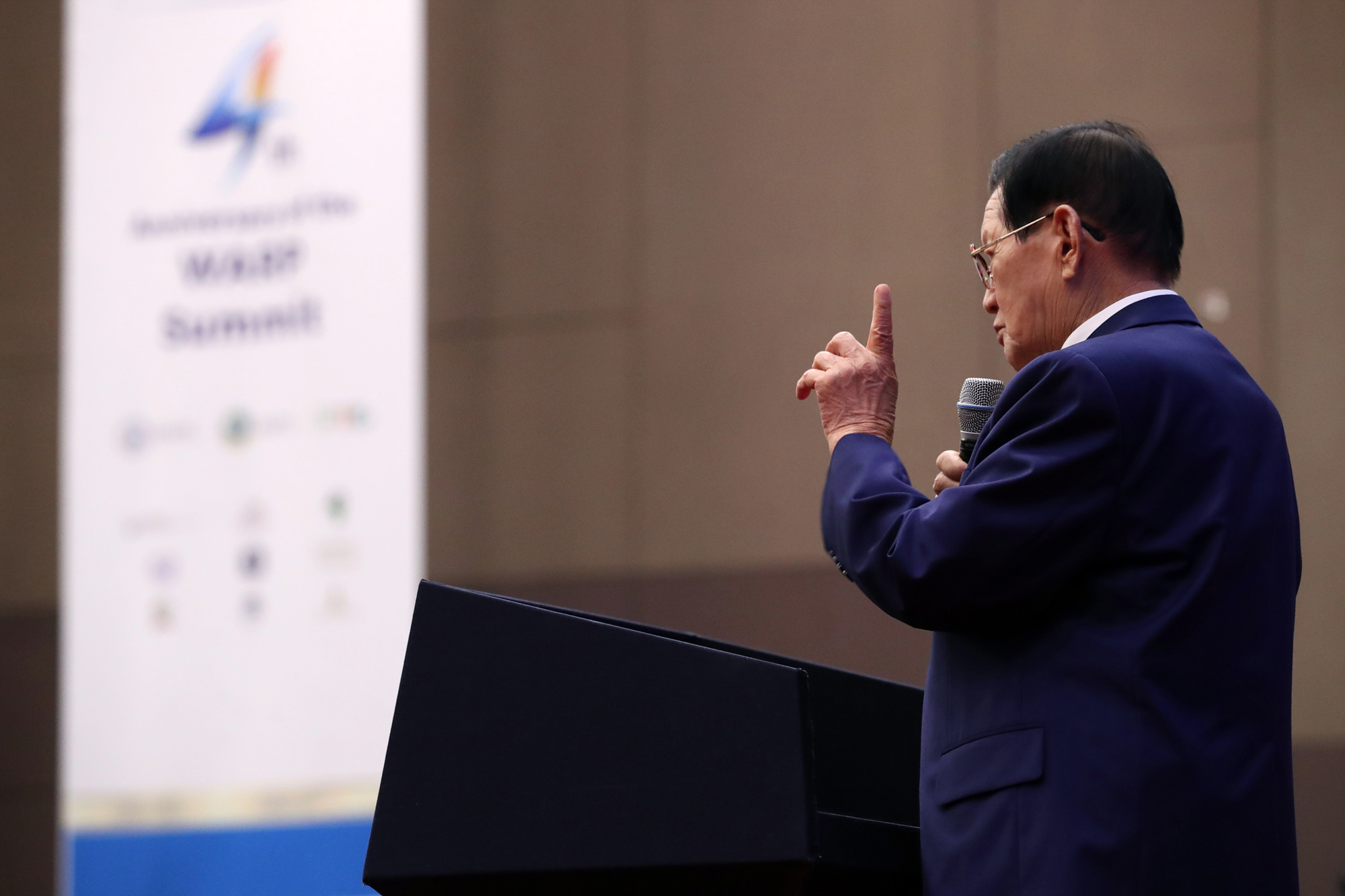In September, Russian President Vladimir Putin said that Russia is a peace-loving state and would “continue to strengthen its armed forces” in the Vostok-2018 war game in Siberia with 300,000 troops. Also, recently, Chinese President Xi Jinping said that China would “remain a builder of world peace” when it participated in the Russian war game. Further, American President Donald Trump said in Twitter that peace “is the ability to handle conflict by peaceful means” while he signed an $854 billion military spending plan and considered it as an “important legislation to rebuild our military.”
Facing contemporary divisive conflicts that displace people and agitate problems with human rights violation, loss of life and economic downturn, increasing the voice of peace in the international society led some global leaders to dissuade military build-up and develop a new approach to global peace – international law.
HWPL as an international NGO affiliated with UN DPI and ECOSOC held the 2018 HWPL World Peace Summit in attendance with about 2,000 social representatives from the globe to call for the endorsement of an international peace law initiative to heads of states. The participants include former heads of state, religious leaders, government officials, journalists, youth and women leaders.
Declaration of Peace and Cessation of War (DPCW)
Regarding the need for a mechanism to address global crisis, Dr. Kamal Hossain, Vice Chair of International Law Association, said, “Despite the existence of the UN charter, there is still more work to be done since conflict still plagues our global society.”
“Topics surrounding the development of legal framework should be discussed by the United Nations and other international and/or national organizations, in order to raise awareness among the public about the importance of world peace and security, as well as the contents of such a legal framework,” Dr. Hossain added.
With the aim of international law to prevent conflicts and secure peace, 21 law experts around the globe and HWPL have drafted the Declaration of Peace and Cessation of War (HWPL) in order to develop principles of peace recognized by the global society through the UN Charter and international agreements and implement these principles in the international society through the UN.
With the 10 Articles and 38 Clauses, the DPCW addresses state responsibility for friendly relations, disarmament, human rights, freedom of religions and spreading a culture of peace. According to HWPL, the declaration reflects comprehensive approach to peacebuilding since the principles include traditional national duties and proposes the role of religion and civic participation to create a peaceful environment.
“The proclamation of the Declaration is like the reminder toward everyone around the world that international law is important that the peace settlement of disputes is to be promoted and that is how you can have a world which is free from war and armed conflicts,” said Mr. Narinder Singh, a member of the UN International Law Commission (ILC) who joined in drafting the declaration.
“The DPCW was born from the voices of women and youths who call for an end to conflicts which bring only destruction and no benefit to them. It reaffirms, strengthens, and elaborates the existing international provisions for renouncing war and other international armed conflicts,” said Dr. Fathi Kemicha, a former member of UN ILC and a member of the International Council for Commercial Arbitration (ICCA).
From ideal to the realization: National Support for Peace
“A set of people committed to global peace and security have to be mobilized to constructively engage member states in ensuring that this declaration is adopted by the United Nations,” stated H.E. Samuel Sam-Sumana, Former Vice President of the Republic of Sierra Leone.
Back in 2017, starting from the adoption of the DPCW as a resolution (AP/1279-278/2016) at Central American Parliament (PARLACEN), consisting of 6 countries; Guatemala, El Salvador, Honduras, Nicaragua, Dominican Republic, and Panama, a worldwide activity for urging the support for the adoption of the DPCW as a UN resolution has spread out.
This year, as a result of the combined efforts – from citizens to the leaders of the society, 3 countries including eSwatini, Seychelles, and Comoros confirmed their official support for the DPCW through presenting the “National Solidarity Statement for the Promotion of the DPCW”. Also, Pan-African Parliament (PAP) agreed to advocate the declaration, suggested by HWPL, in order to submit it to the UN.






















































